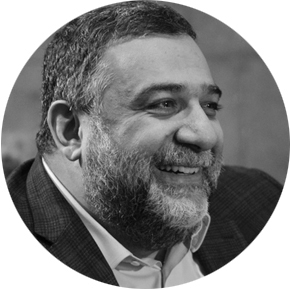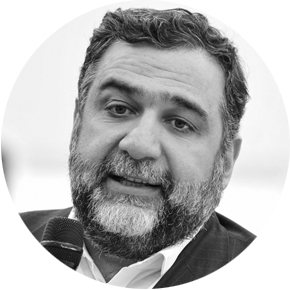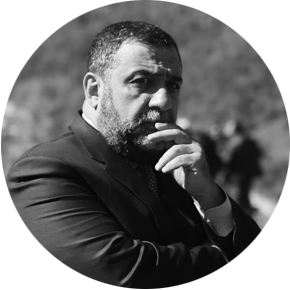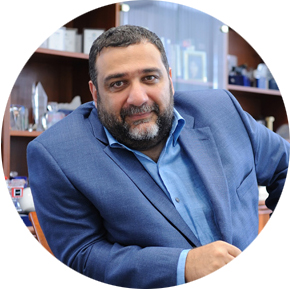On 25 May 2018 social entrepreneur, co-founder of IDeA Foundation Ruben Vardanyan turned 50. We have selected some remarks from his interviews to Mediamax and speeches he delivered through the years.
On the exhausted model of management (October 2016)
We approached the 25th anniversary of Armenia’s independence in a situation where the country’s model of management, built during this period, has exhausted itself.
After the collapse of the USSR, the power in Armenia was taken by people born and raised in the Soviet system, or former dissidents, former Komsomol or Communist Party staff, former employees of special services. Many of them did and do love Armenia, but having only the experience in management they witnessed in the Soviet Union and no opportunities to study elsewhere, they recreated the management model that was the most comprehensible and familiar to them.
Meanwhile, people who can speak more languages, who are more cultured and better educated are left on the sidelines and unable to achieve any real success, because the dominant model in society is that of semi-criminal machismo.
On the “nation-army” thesis (October 2016)
I think we have no alternative other than to do it. I just do not see another option. Israel has lived by this model for decades and it does not stop the country from being a democratic state. In Switzerland, quite a neutral and peaceful country, people keep weapons at home and regularly participate in military training.
We have a long way to go to change people’s attitudes towards the army, and I am glad that the new minister has decided to start by bridging that significant gap. For example, we do not have consensus within the public on whether it is shameful or not to avoid service. Nevertheless, the army’s combat readiness is not only about the material-technical abilities and new weapons, but by the level of support the soldiers and officers receive from society. An officer should not be ashamed of going out in his military uniform; on the contrary, he should be proud. We need to fundamentally change the situation where the army is a “burden” for the state budget and peaceful life, and create an atmosphere where young men and even women aspire to serve voluntarily.
On disconnection between Armenians (March 2015)
Once I asked a respected person, publisher of a magazine in the Diaspora, why they never mention the Armenian community in Russia in his report, and I received the following reply: “They do not speak Armenian and English, and I do not know anything about them”. At these moments you realize that there are grave fractures in what we picture as a consolidated Armenian Diaspora.
Another overt issue is that many Armenians who left Armenia in the past 25 years are trying to prove to those around that they took the only right decision, whether they do so consciously or not. As a result, a great number of representatives of this “new Diaspora” have a subconsciously negative attitude to what’s going on in Armenia and flatly do not want to associate themselves with the Armenian world.
On mediocrity (March 2015)
The mediocrity that has taken deep root in our society is very dangerous, because it kills our creativity. To overcome this crisis, we need to revolutionize our perception. We should surprise and break the biases. We cannot go mediocre and should spare no effort to be the best in everything we do, in the way we live, in the way we work and think.
On his radical approach (May 2017)
Karen Karapetyan’s task is rather difficult, because he must bring about changes without a revolution. I am more of a revolutionary kind of man, I believe that the model must change drastically. I support a more radical approach, which both the President and the Prime Minister know. Of course, it’s easier for me to say that, because I don’t hold an official position.
On April War and “half-truth” (April 2016)
Perhaps, I’m exaggerating, because I’m an emotional man, but the April war does not allow us to speak “half-truth”. It doesn’t allow us to refrain from asking, for example, why children of the elite don’t serve in the army.
On “grey” and “black” leaders (February 2012)
I once came across an interesting idea that all changes in the word happen through reformation, revolution, or inquisition. That is, there are only three mechanisms to make changes, there are no others. All of them entail a huge number of victims. I don’t want to scare anyone, but that’s the rule of the history and tough times are waiting ahead. Any change of the system entails victims, although not always in the literary sense, but many groups will suffer very hard and that leads to a psychological crisis. There will be either reformation or revolution. Generally, “grey” leaders are replaced by “black” ones.
A lot of grey leaders emerged in Europe in 1920s and populism was riding a high wave. People were tired after the World War I, they wanted a break and the problems were either unsolved or solved partially. Tougher leaders made use of the situation which eventually led to the World War II. That’s why I believe we are to face collapse of the system. Who will the history push forward, what kind of leaders? I think we are on the threshold of serious social and political changes that will take place in 5-10 years.
On climbing Ararat (October 2015)
Given my weight, climbing the mountain was very hard for me, not to mention we were caught in a snowstorm. But I am glad we were able to overcome all the challenges. I once promised my grandfather I would climb Ararat and it was important for me to keep the promise.






























Comments
Dear visitors, You can place your opinion on the material using your Facebook account. Please, be polite and follow our simple rules: you are not allowed to make off - topic comments, place advertisements, use abusive and filthy language. The editorial staff reserves the right to moderate and delete comments in case of breach of the rules.